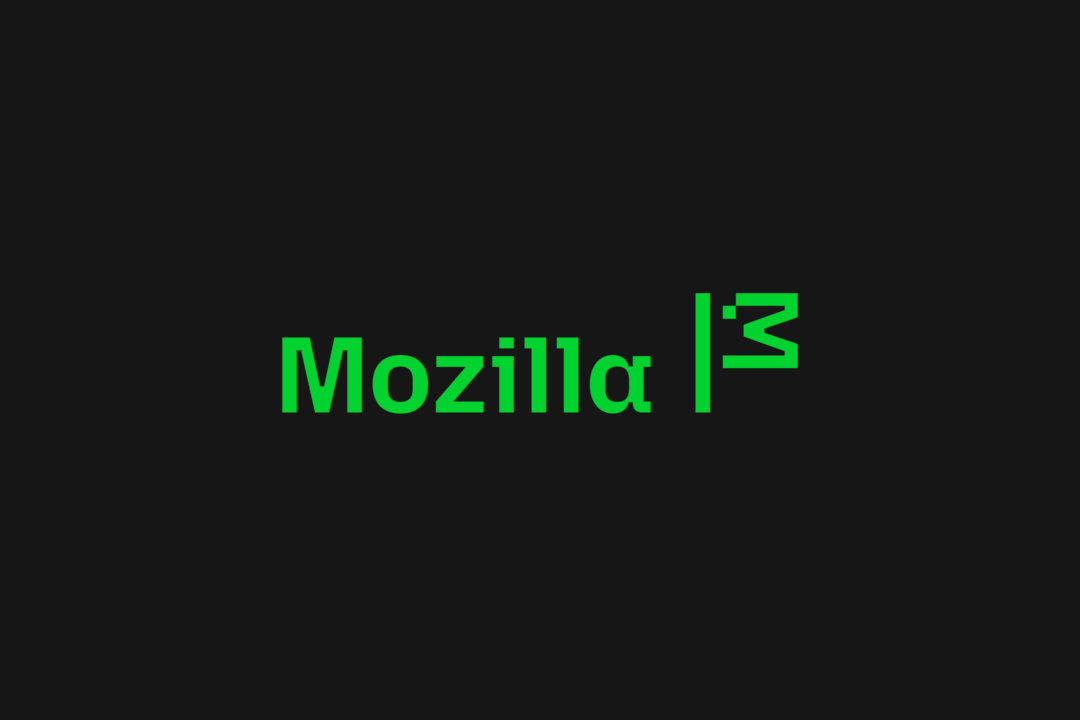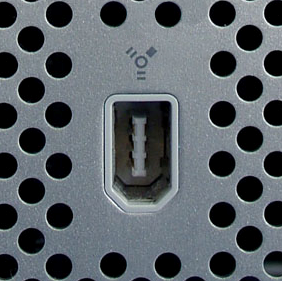An recommendations for Pocket-Alternatives? I save articles on my phone and desktop and read on my tablet…
I tried pocket a couple of times but couldn’t get past the “we think you’re on a phone so you’re only getting three items on the screen at once”. Well I’m not on a phone, I’m on a desktop with a 32" monitor and three T-Rex sized items on my screen is just terrible design.
I hope they don’t remove Mozilla accounts too, I have all my bookmarks and sync between devices there. Zen browser that I use relies on this and I assume other browsers based off Firefox do too. Mozilla does not have a good managing team and they deserve to go down but there should be a transition period.
fuck, I’m using the Pocket plugin a lot :[
not for proper bookmarking, just to mark where I was in longer videos and webcomics, 1 click on/off, easy
i used pocket once, and after several steps to activate it, i realized that it was not at all what I thought it was going to be and never touched it again
Pocket is the sort of shit that makes me embarrassed to recommend Firefox.
YES! No more Pocket button sticking out like a sore thumb!
Wasn’t it possible to remove that button?
Possible: yes
Convenient: no
It’s literally in the same place as all other UI customising, though. I consider that as convenient as it gets.
“Oh no, I have to move the mouse for about 10 cm!”
with every fucking install on every machine. for years.
a waste of space and time. always has been. but did moz listen? no. because fanboys like you mock the user and give them the confidence to do stupid shit. lame CEOs, failed TB, fxa servers…geez the list of absolute wrong directions moz went is so long.
praising freedom and a decentralized internet, but store links, passwords etc on their shit american servers. the only good idea moz has was to start coding a browser…after that it just went downhill…according to the decline of users of the years. what is their market share today and why?
Wasn’t it in about:config? Or maybe it used to be.
Could have been back when the button was part of the address bar. But that was forever ago.
On Firefox? I’ve used it for years and this is the first time I hear of Pocket
On Firefox? I’ve used it for years and this is the first time I hear of Pocket
And then people get all pissy when Google or Microsoft show a pop-up of a new feature…
In a world without dark design patterns, there would be a single pop-up when you first install the application, to ask if you want notifications and/or suggestions for new features. If you click “no”, it should never bother you again unless you go into a menu and opt in. Anything beyond that is inherently predatory.
Ideally, that pop-up wouldn’t even exist. They could just have a collective “don’t bother me again” checkbox on every non-essential notification, so you can easily disable it the first time they become relevant. If your user has already indicated that they are not interested, any further pestering is essentially harassment.
Yes, Microsoft is especially bad in this regard. For this whole spring have I clicked hundeds of times that I’m aware that my trial is ending. They also introduced a new feature that they promote on a space that takes literally half the screen. And youtube premium, oh boy.
It literally takes 5 seconds to remove it.
No time, need to shit post
Mozilla should fire their non-technical staff, strongly make the case for how they’re fighting for a free and open internet, and use a subscription model for Firefox to pay the bills
Nobody is paying a subscription to use a browser they can get for free.
Patreon and Wikipedia are things people pay for that they can get for free. I have long wanted a way to directly find Firefox development and sustainability.
Enough internet users are familiar with the adage “if a product is free, you are the product”, through personal experience
I’d be OK with paying for Firefox if it meant that it was stripped of all association with advertisers. And presumably, if Mozilla were freed from that association, they’d be able to make a stronger case for how they’re protecting a free internet
I liked it at first until the recommendations became more-and-more advertorial slop.
I used it like 3 times before deciding my read later functionality is already and better served by the 206 tabs I will never look at.
Pocket is one service of theirs I did use from time to time. Save an article you want to read later without committing it to a bookmark.
Wish they’d make bookmark not suck so much that using them felt like a commitment to organisationnal chores. The bookmark system is largely unchanged since the netscape days.
You cant search texts inside bookmarks because they only store the url. Which will break. Instead of saving the html itself, as if we still only has hundreds of gigabytes.
It should have a library level search system, capable of not just symbol text but intelligent summarization, categorization, search by relecant, content discovery algorithm, rss feed support all fully local, offline capable.
The whole thing, metadata, html, inages, video, files, code, replay of the changes over time. Yes I should be able to replay clicking “read more” as I expand comments on facebook. I should not lose my work to a page reload ever again. And no that’s nor “too much space”. Web pages are largely text sent super efficiently it is not that much information even compared to a gigabyte.
What you’re describing is so much more difficult from a technical standpoint than you give it credit.
Static pages – sure, the plague of single page applications – oof, that’s a challenge.
I’ve actually been thinking about this a lot. “Save Webpage” is useless nowadays because everything is loaded externally through scripts. What if it saved a timeline of requests and responses somehow and could play it back? This might require recording the entire JS state though… and so much more with browser APIs. Saving just the requests+responses as a cache would fail if the scripting was non-deterministic. Maybe it would make sense to literally save a “recording” of the HTML and CSS changes, playing back only the results of any network requests or JS?
This would be a whole new pipeline to make interactivity work. Emulating a server with cached responses would allow to reuse the JS part of websites and is easier to do. I have no doubt that some pages wouldn’t work and there would be a shitton of security considerations I can’t imagine.
We can save entire operating systems in that way, the heavy burden is borne by the hardware, as far as the software is concerned it is to dump the memory snapshot of the engine into a file and reload it later.
I mean, it’s been almost 30 years and this aspect hasn’t evolved because of a long expired belief that we will be able to re-download it all later as if the internet wasn’t eventually going to churn over and all links will eventually break.
Ok, so your average site doesn’t download content directly. The initial load is just the framework required to fetch and render the content dynamically.
Short of just crawling the whole site, there is no real way to know what, when or why a thing is loaded into memory.
You can’t even be sure that some pages will stay the same after every single refresh.Comparing it to saving the state of OS isn’t fair because the state is in one place. On the machine running the code. The difference here is that the state of the website is not in control of the browser and there’s no standard way to access it in a way that would allow what you’re describing.
Now, again, saving rendered HTML is trivial, but saving the whole state of a dynamic website require a full on web crawler and then not only loading saved pages and scripts, but also emulating the servers to fetch the data rendered.
I understand a VM isn’t the same since at least it is somewhat self-contained.
But at the end of the day, a browser does end up showing you something and has a stable state waiting for your input. These stable moments are like checkpoints or snapshots that can be saved in place, the whole render engine state machine. And that can be saved at multiple times, similar to how internet archive takes periodic static snapshots of websites.
It should be trivial, a one-click action for the user to save the last couple of these checkpoint states to a format that can be consulted later and offline or after the website has gone. Whether that’s just saving “everything” it needs to recreate the machine state, or by saving only the machine state itself.
That doesn’t mean the whole website will remain interactive but it will at the very least preserve what was inside the scroll buffer of the browser
And that is a LOT better than just saving a broken link, or just saving a scrolling screenshot, which already would be an improvement over the current state of things.
It would also allow a text search of the page content of all bookmarked pages. Which would be huge since the current bookmark manager can barely search titles and very poorly at that.
The bookmarks system is long LONG due for a full overhaul
This “machine state” definition and manipulation is exactly the hard part of the concept. I’m not saying it can’t be done, but it’s a beast of a problem.
Our best current solutions are just dumb web crawler bots.
To me a simple page saving (ctrl+s) integration seems like a most realistic solution.
Now imagine having google, bing, qwant, duck duck go and ecosia bookmarked.
You’d get a mostly empty page with a search box in the middle … and a few hundred megs of tracking software.
As an occasional user, I am sad to see it go. Are there any other sites out there to maintain a list of links that I may find useful in the future? With a web UI and not self hosted?
Synced bookmarks. You’ll be happy to learn that this is also a feature Firefox offers.
Bookmarks can do all that already or am I missing something?
Pocket can save the content of an article without the formatting and ads, which you can then download to Pocket’s app for offline reading.
Ah thanks TIL
I use Inoreader as my RSS feed reader and it has a section to save webpages in a similar fashion.
Before pocket I was using instapaper, seems like it’s still around. Bit of a shame about pocket, it’s pretty useful
Never used pocket, how does this differ from just having a bookmarks folder called “stuff to read while you’re taking a shit”?
The difference is in convenience.
On the one hand, you can add a page to your bookmarks, after choosing the correct folder, of course.
On the other hand, you can click a button and a page gets automatically saved in your “read later” storage, with a description, summary, and a preview of the content.
From the 404media article on the subject:
The Distilled announcement post says the company made the choice to shut down these products because “it’s imperative we focus our efforts on Firefox and building new solutions that give you real choice, control and peace of mind online.” It also says the choice will allow Mozilla to “shape the next era of the internet – with tools like vertical tabs, smart search and more AI-powered features on the way.” Which is what everyone wants: more AI bloat in their browsers.
(The monkey paw turns, and) we got our wish.
We did, internet! We killed Pocket!
Owning things like Pocket is fine as long as each product stands on it’s own. Melding them together is what upsets their user base.
100%. And companies don’t seem to realize this. I’ll use fakespot, but there is absolutely no use for it to be an inbrowser app, and the fact that it suggests (pushes) the idea each time I use the website is just maddening. That said, I appreciate that service.
Pocket can stay or leave. I don’t care one way or the other. I never understood its usecase.
the fact that it suggests (pushes) the idea each time I use the website is just maddening
I don’t think I’ve ever seen this suggestion. IDK where I clicked “STFU” but I only ever remember seeing something about it once.
I clear cookies often, so it could be a cookie setting, maybe.
Good. I never trusted those integrated apps and thought of them as spyware. Mozilla should go back to focusing on making a lean browser and whatever apps they want to offer should be optional instead of hard coded into their flagship product.
Pocket was always among the first things I disabled when setting up Firefox and apparently, I wasn’t the only one doing that… I’m sure it had its users but I always found normal bookmarks to be more convenient.
Never even heard of Fakespot, though.
Fakespot was kinda nice, whenever I looked at something on amazon I’d get a sidebar showing which reviews are real and summarizing them. It’s actually pretty useful. Definitely will not miss Pocket.
I’ve found a better way to use Amazon: not using it and fuck you, Bezos.
Fakespot became defeated years ago and became useless on Amazon.
The best method I’ve had is to ignore any off brand looking product that’s been for sale for less than a couple months, but has tons of reviews, and when I pick something, sort the reviews by newest first and read those ones.
Usually the most paid reviews and fake reviews are close to when a product first starts selling. If the thing has been for sale for a little while, odds are that the most recent reviews are mostly from real people. Also, sometimes they will sale a higher quality item the first few weeks it’s for sale, and then start selling the item with cheaper parts on the inside. Like earbuds with good innards getting swapped out for cheaper drivers and processors.
Is camel camel camel still useful for Amazon?
I’ve found it useful enough not too long ago, mostly for comparing Amazon’s pricing differences for identical products between various EU countries.
Keepa is better, and depending on whether you’re conspiratorial, not compromised as 3Camels was accused of some years ago.
Compromised?
3Camels was, maybe still is, fully dependent on the Amazon affiliate program. A program that was reduced at one point, killed off 3Camels competitors, but not 3Camels. Then Amazon asked them to stop tracking during Covid for a time which they did.
This is around the time that I heard about Keepa which has a different model, not solely Amazon but other stores too, and not paid via affiliates program.
Also it’s just faster. 3Cs was getting super slow to notify. You’d get an email, click and surprise, that sale was over yesterday.
I probably heard about the controversy on Reddit at the time but there’s a chance I found this site here which covers some of my recollections.
Thanks!
Yes CamelCamelCamel is still useful. I check it every time before a major purchase.
Never heard of this. Sounds useful, except I’m really only buying something from them because I need it quickly most of the time. I don’t have the convenience of waiting for price drops like I do with Steam games haha. Thanks for sharing!
didn’t fakespot only work in the USA?
Never tried it outside of the USA, couldn’t tell ya.
Bookmarks and services like Pocket are for different things. Bookmarks are for websites you come back to often. Pocket and other services like it are for saving links to stuff you want to remember and/or come back to once or a few times. Bookmarks are not made for having thousands of, while “read later” services are for saving anything and easily have hundreds, thousands, even tens or hundreds of thousands of things saved.
“Read once bookmark”. Problem solved.
Regardless of whatever it did or however it did it, the way Pocket was suddenly shoved in everyone’s faces by default definitely left a bad taste in a lot of mouths (including mine) and everybody just considered it more unasked-for adware. Especially since in its default configuration about a quarter of what it serves you is indeed flat out ads, when most of us are using Firefox with uBlock or similar specifically not to see ads.
Pocket provided a feature I suspect few people actually used, and in the process had an obnoxious presentation that a lot of people actively disliked. Add me to the list of people who won’t be sad to see it go.
I want my browser developer developing browsers, not other ancillary side projects and certainly not “curating content” or whatever the fuck.
I would not be at all surprised to learn that Pocket costs Mozilla a nontrivial amount of money and manpower to maintain, what with doing all that curation and all, and provides them bupkis in return.
well they are terminating it for a reason.
i used to use pocket all the time back in the day. slowly realized there arent many articles worth saving for later let alone reading at all.
I use Fakespot but wasn’t aware it was a Mozilla product.
The bought it out. It was originally an extension.
still is as far as I know. I am using it.
Not for much longer
Yeah, me too. I hate that useless Pocket icon in the toolbar. It’s the first thing I disable on every Firefox installation.
Glad it’s gone for good.
OMG I JUST started using Pocket because my work banned Firefox and made us all switch to Edge!!
Now how am I going to sync bookmarks and pages I want to read later on my personal devices??
I generate a QR code and scan it with my phone. Don’t sync work and personal devices.
I’d be very tempted to install Firefox in my local appdata folders (which doesn’t require admin rights to install), then install a theme to make FF look like Edge with something like this..
Still use real Edge browser for work stuff, but FF for less-than-work stuff.
They are probably scanning for the binary file executable.
There’s Instapaper and once upon a time they even gave you an email address to send links into. Maybe they still do that.
If your work doesn’t care about your productivity then give them what they deserve for the tools they provide.
I forgot what it is called but there is an extension that syncs bookmarks between Firefox and Chromium browsers.

















